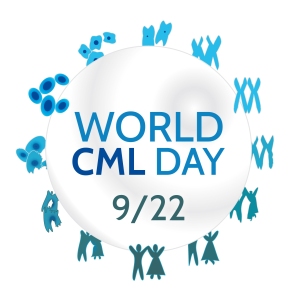A group of charities and advocates (including me) have come together to put a letter in front of Simon Stevens, the chief executive of NHS England to ask him to consider the situation for two CML drugs: bosutinib and posatinib.
The letter sets out the case for the retention of bosutinib on the list of Cancer Drugs Fund (CDF) drugs for CML patients in England, and also argues for ponatinib to be made available, via the CDF, for any patient in England that falls within its licensed use providing their clinician thinks it appropriate and the patient agrees to treatment. This would allow CML patients resident in England to enjoy the same level of access CML patients in Wales and Scotland currently enjoy.
There was a Written Parliamentary Question answered by a Department of Health Minister on Monday that confirmed rumours that have been circulating for some weeks that there will be no new applications for drugs to enter the national CDF in the future. This would effectively make ponatinib unavailable in England to all clinically qualifying patients who do not have the T315i mutation.
NHS England will of course say a clinician can make an exceptional needs application for ponatinib treatment for an individual patient but the success rate to date of this type of application has been negligible.
Finally, it’s important to stress that all patients in England currently being treated by bosutinib or ponatinib via a successful application to the CDF will continue to be able to be treated with either drug until they or their clinician decides otherwise.
I’ve posted the content of the letter below and have also included a download to the PDF. It has also been sent to the Secretary of State for Health. Many thanks to David Ryner at CML Support for spearheading this action.
I’ll keep you posted with any progress. Thanks, Kris
Dear Mr Stevens,
We are writing to you regarding the recent announcements relating to the Cancer Drugs Fund (CDF) and the specific decisions that have been taken on treatments for chronic myeloid leukaemia (CML).
As patient groups representing the concerns of patients with CML, we are particularly alarmed by both the inclusion of CML treatments in the next review of the CDF for delisting at the end of this month, and by the suggestion that there may not be any further meetings of the GDF panel to consider new treatments or indications for the remainder of the 2015/16 financial year.
In particular, I would like to draw your attention to the situation currently facing two medicines which treat patients with more advanced CML, who therefore face severely limited treatment options. Bosutinib is scheduled for review at the next meeting of the CDF panel at the end of this month. Ponatinib, a drug which has never been appraised by NICE due to its small patient population, is only available through the GDF for patients with the T315i mutation, rather than in its full licensed indi. cation. Ponatinib was due to be assessed by the CDF panel for its full licence in June, before the cancellation of the last scheduled meeting.
This situation for those patients needing access to ponatinib is particularly acute; with NHS England’s Commissioning Intentions for 2015/16 committing to producing algorithms for all chemotherapy within the year, ponatinib now faces the prospect of being effectively excluded from the CML algorithm entirely, with the exception of the T35i mutation.
When the threat to bosutinib is factored in and with the exception of the minuscule number exhibiting the T315i mutation, patients in England now face a lack of access to two of the five drugs that are currently available to them. The clinical effectiveness of these drugs in being able to secure optimal responses at speed and scale relative to the current entry level CML inhibitor, imatinib, now over a decade old, is well established.
The Government’s Accelerated Access Review (AAR) demonstrates a welcome recognition that current evaluation processes require revision to ensure they are fit for purpose in assessing the new generation of innovative products, including targeted therapies for CML. We recognise, too, that the CDF needs to adapt its processes to remain in step with the wider Government agenda.
It is therefore bewildering, contradictory and illogical for NHS England’s real time activity to be moving in the opposite direction of travel in reversing, rather than accelerating, access to targeted therapies for CML. This is made even more remarkable given the fact that, relative to other CDF list treatments, the performance of this class of drugs has been considered outstanding when judged against standard measures of survival. As a result, the overwhelming majority of patients are now able to secure decades of benefit from these home-based oral therapies, with their lives returning to near normal (and patients enjoying near-normal life expectancy) following treatment.
Such marked improvements in CML patient outcomes have been achieved by the steady increase in targeted therapies. We believe that to withdraw the opportunity from patients who would benefit from targeted CML therapies such as ponatinib and bosutinib is both discriminatory and perverse and we would strongly urge you to reconsider this decision by NHS England.
cc. Rt Hon Jeremy Hunt MP
Yours sincerely,
David Ryner, Chair, Chronic Myeloid Leukaemia Support Group
Chris West, Head of Media and Public Affairs, Leukaemia & Lymphoma Research
Tony Gavin, Director of Campaigns & Advocacy, Leukaemia Care
Nigel Deekes, CML UK
Kris Griffin, UK CML blogger
Simon Stevens Letter PDF
Jeremy Hunt Letter PDF
52.388596
-2.249684







